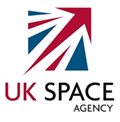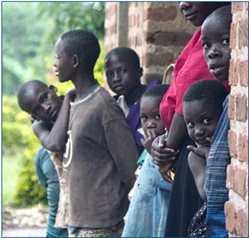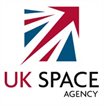









Anti-trafficking Using Satellite Technology for Uganda’s Sustainability (ASTUS) Discovery Phase
Timeframe: August 2020–March 2021
Objective: Develop a high-level sustainable design for the Modern Anti-trafficking Support System (MASS) in collaboration with stakeholders
Introduction
The Discovery Phase of the ASTUS project aims to develop a high-level sustainable design for the Modern Anti-trafficking Support System (MASS) in collaboration with stakeholders. It is the crucial first step towards the full development of a MASS during the Operational Phase. The Discovery Phase runs until the end of March 2021 and its outcomes will determine whether funding for the Operational Phase can be secured. For the Discovery Phase to be successful continued engagement with, and feedback from, stakeholders is critical.
Purpose of the Discovery Phase
The Discovery Phase is centred on collaborating with stakeholders so that Anti-trafficking using Satellite Technology for Uganda’s Sustainability (ASTUS) Discovery Phase Stakeholder engagement is vital in the development of MASS and tackling the issue of Trafficking in Persons. Funded by the UK Space Agency’s International Partnership Programme Timeframe: August 2020 – March 2021 Objective: Develop a high-level sustainable design for the Modern Anti-trafficking Support System (MASS) in collaboration with stakeholders. any proposed design for the Operational Phase is firmly grounded in the needs of stakeholders in Uganda, their capacity to make use of it, and the willingness of appropriate entities to assume ownership of the MASS to ensure its sustainability.
Process and activities during the Discovery Phase
In order to meet this objective, ASTUS project members will (continue to) seek your active engagement during the next months. This process will largely focus on five areas:
1) Understanding the stakeholder landscape. ASTUS will collaborate with stakeholders to obtain a clearer picture of which stakeholders are active in Uganda, their roles, and connections in tackling trafficking in persons. This involves politicians, government bodies, non-governmental and civil society organisations, the private sector, and international organisations. ASTUS will seek your input as a stakeholder to refine our knowledge of the stakeholder landscape.
2) Understanding user requirements. With many stakeholders involved with different roles in combating Trafficking in Persons, understanding the user requirements is essential before starting the Operational Phase. By drawing on your expertise as a stakeholder, the ASTUS team aims to map differing needs, identify existing data which can potentially be leveraged by the MASS; access levels which need to be built into the system; and what outputs it needs to generate, etc. You will be invited to and collaborate with ASTUS through a series of interviews, workshops, or other forms of engagement.
3) Trial of ground-level data collection. Any MASS relying on Earth Observation technology also relies on ground-level data (for example, whether landscape features could be indicative of Trafficking in Persons). Together with stakeholders, ASTUS needs to understand what data is available, what can be collected and how. With quality ground-level data, ASTUS will be able to generate actionable and reliable outputs.
4) Trial of a mock-up system. Towards the end of the Discovery Phase, ASTUS will develop a mockup system based on collaboration with, and input from, stakeholders. This mock-up will focus on how the MASS could look; a fully operational system incorporating all user requirements will not be developed until the Operational Phase. The purpose of this trial is to get stakeholder feedback and hear your ideas, to ensure that the MASS is truly co-produced.
5) In parallel to these activities, ASTUS will design a monitoring and evaluation framework in order to build a shared understanding of what the MASS will need to be successful, and the steps towards that mutual goal. Selected stakeholders will be invited to participate in this process as well.
Key ASTUS members during the Discovery Phase
Over the next few months, key ASTUS team members from Makerere University, Retrak/Hope for Justice and the Universities of Dundee and Nottingham will engage closely with you as stakeholders. Partners from AIRBUS and IPE Triple Line may also be involved regarding technological and monitoring and evaluation aspects.
Makerere University, Uganda: Dr Eddy Walakira, Dr Yazidhi Bamutaze, Dr Badru Bukenya
Hope for Justice Uganda: Florence Soyekwo, Country Director
University of Nottingham, UK: Professor Doreen Boyd, Dr Chloe Brown
University of Dundee, UK: Professor Lorraine van Blerk, Professor Mark Cutler, Dr Roeland Hemsteede
IPP is part funded from the Department for Business, Energy and Industrial Strategy’s (BEIS) Global Challenges Research Fund (GCRF)
